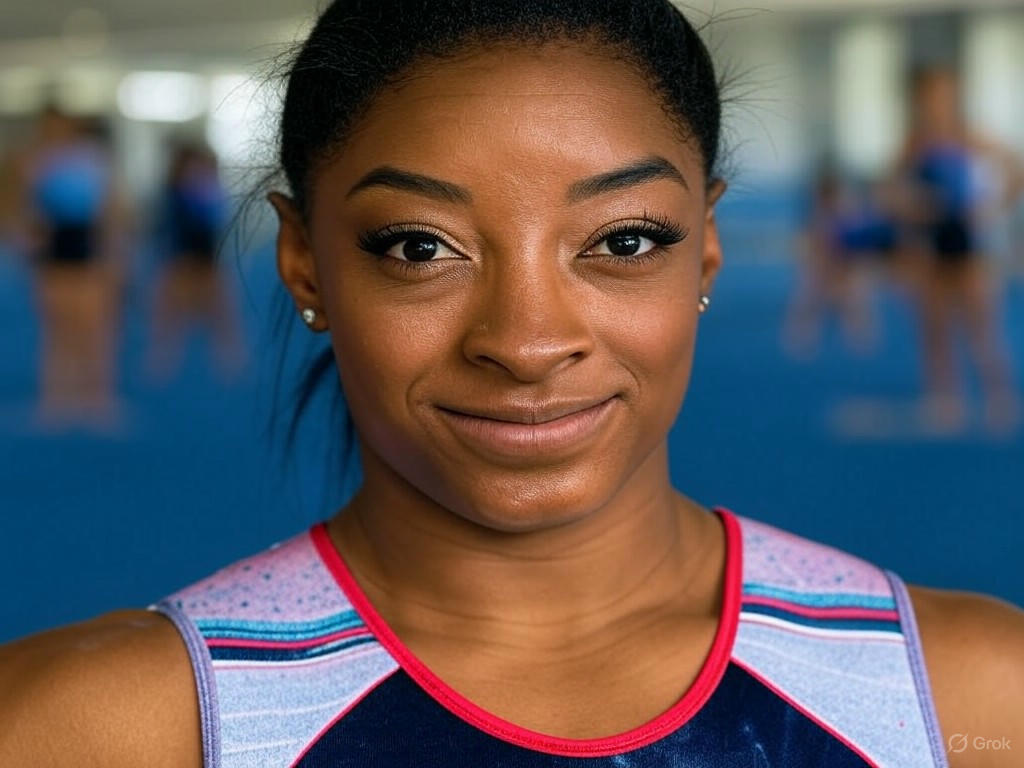Simone Biles Calls Out Riley Gaines Over Anti-Trans Comments in Sports Debate
In a fiery exchange that has sparked heated discussions across the sports world, Olympic gymnastics legend Simone Biles has publicly criticized former college swimmer Riley Gaines for her outspoken stance against transgender women competing in women’s sports. Biles, known for her unparalleled achievements and advocacy for equality, didn’t hold back, labeling Gaines’ remarks as narrow-minded and reflective of bitterness rather than fairness. The clash has reignited the ongoing debate about inclusivity in athletics, with both athletes standing firm on their perspectives.
Biles, a multiple-time Olympic gold medalist, took to social media to express her frustration after Gaines repeatedly voiced concerns about transgender athletes, arguing that their participation creates an uneven playing field. While Gaines has framed her campaign as a defense of women’s sports, citing biological differences, Biles countered that such rhetoric often masks personal resentment. “It’s not about protecting the game; it’s about refusing to accept change,” Biles reportedly stated, emphasizing that sports should be a space for all to thrive, regardless of gender identity. Her words have resonated with many who see her as a champion not just in gymnastics but also in pushing for progressive values.
The controversy stems from a broader cultural and political divide over transgender rights in competitive sports. Gaines, who has become a prominent figure in advocating for policies that restrict transgender women from competing in female categories, claims her stance is rooted in preserving opportunities for cisgender women. She has shared personal anecdotes from her swimming career, suggesting she lost chances due to competing against transgender athletes. However, critics like Biles argue that focusing on exclusion rather than adaptation only deepens division. Biles highlighted that governing bodies are already implementing guidelines to ensure fairness, such as hormone level regulations, and urged detractors to focus on supporting athletes rather than sidelining them.
This public spat has drawn attention from fans and fellow athletes alike, with social media platforms buzzing with opinions on both sides. Supporters of Biles praise her for using her platform to advocate for marginalized groups, noting her history of speaking out on issues like mental health and systemic inequality. Meanwhile, Gaines’ backers argue she’s bravely addressing a complex issue that many shy away from, insisting that her concerns deserve a fair hearing. The debate underscores the challenges of balancing inclusivity with competitive equity, a puzzle that sports organizations continue to grapple with.
As the conversation unfolds, Biles remains a powerful voice for change, reminding everyone that sports are about unity and growth. Her critique of Gaines serves as a call to rethink outdated attitudes and embrace a future where every athlete has a chance to shine. While the resolution to this issue remains uncertain, one thing is clear: the dialogue sparked by these two athletes will shape the landscape of sports for years to come, pushing for a deeper understanding of fairness and acceptance.


